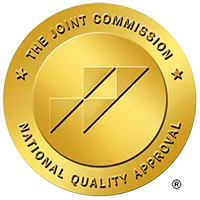Yes, I knew that people could relapse. I knew that Parker struggled with substance abuse most of his young life and this shouldn’t have been a big shock. While my housemates went on with their lives, I stared at his bed and mourned. I was depressed for a week and all I could think about was why. Thoughts started filling my head of why I was still kicking it in recovery and Parker didn’t “make it.” It was weird because he wasn’t dead, yet I was holding vigil like a widow.
It felt strange and it was strange indeed. Over the years, I would experience the same feeling when my cousin died tragically due to alcohol, and would feel it to a lesser degree when a friend or acquaintance would relapse. With more sobriety under my belt, I came to realize that what I was feeling in those moments was called survivor’s guilt. It can be disorienting and can turn your soul upside down, but it comes part and parcel in the ever-winding journey known as recovery.
Survivor’s Guilt Explained
For those who may not be well-versed in this phenomena, survivor’s guilt is a mental condition in which an individual experiences an immense amount of guilt and numbness following a life-threatening and traumatic event. People who experience survivor’s guilt feel the way they do because they have come through that event while others had not come through. We often hear of survivor’s guilt among those in the military who come back from the intensity and horror of battle. This condition can also apply to those who survive diseases such as cancer or other chronic illness and are mourning the loss of those peers who shared the same diagnosis.
Survivor’s guilt can definitely be felt among those who are in recovery from substance abuse—and especially early in sobriety. Your recovery may be going great, and you are sharing similar experiences with others who are also starting their journey. In the event that someone relapses and experiences the consequences of that relapse, you may feel guilt, even though it isn’t your fault they backslid into active substance use. You may know that relapse often occurs in the addiction recovery process, but through the fragile filters of a mind that is still recovering from addiction, that fact can get twisted, distorted and turned on its head.
Can Survivor’s Guilt Serve a Purpose to Those Who Are in Recovery?
In my experience with survivor’s guilt in my recovery, I had to look beyond the “why me?” feeling that dominates the inner dialogue and search for a deeper meaning. When I stopped to take a more candid look into the what and why of my feelings, I realized that survivor’s guilt did serve some purpose in the addiction recovery process. Granted, one shouldn’t dwell on guilt and the depression that can accompany it for too long—but I found there can be great benefit in learning from the experience of going through survivor’s guilt.
First, it helped me find meaning and make sense out of what I was experiencing as a recovering person. Experiencing survivor’s guilt also helped me cope with the helplessness and powerlessness of being in the life-threatening situation I was in when I was addicted to drugs and alcohol and helped me find healthy ways to process my emotions. Most importantly, when I was able to understand my survivor’s guilt for what it was, I was able to experience gratitude, and I began to appreciate my life and my struggles and I was able to appreciate the small daily victories that came with living each day clean and sober.
What If I Experience Survivor’s Guilt in My Recovery?
If you encounter survivor’s guilt as a part of your own recovery process, there are some basic but important things to keep in mind. First, feelings of guilt are a part of the healing process from a traumatic life event. While it can’t be framed in the same way as surviving combat, a natural disaster or a terminal disease, addiction is traumatic for the addict, their family and their loved ones. You must acknowledge that you feel guilt and bring it out into the open so you can find healthy ways to cope.
Secondly, don’t isolate yourself from others. When one feels guilt, it is tempting to sit in silence and let those emotions churn and stew inside. You need to talk to a trusted family member, friend or an experienced counselor or therapist in order to make sense of what you are feeling. By giving voice to what you are feeling, you can get it out in the open and uncover the roots of why you feel guilty. You want to avoid “working through” guilt by trying to set high standards of achievement—this is a distraction technique and you are not addressing the bottom line.
Most importantly, you must understand that you are human and that you will feel what you feel. Instead of trying to compare your experience with others, try and evaluate your experience on its own merits. Instead of running from the mystery of survivor’s guilt and why you feel it, embrace that mystery and come out the other side wiser and more resolute in working your program of recovery. While it can be physically and psychologically grueling to endure, survivor’s guilt can be a great tool to help you stay strong in sobriety.
Original Article from TheFix.com
Red Rock Recovery Center is a Colorado state licensed substance abuse extended care treatment program designed to help you or your loved one recover from the struggles associated with alcoholism and drug addiction. Located in Denver, Colorado we offer a safe haven for those afflicted by the ravages of untreated addiction. Our program is based on a compassionate 12-step model that applies behavioral as well as life skill therapies, which will enable our clients to heal and recover.
#recovery #drugrehab #redrockrecovery




